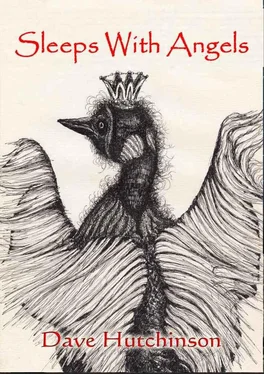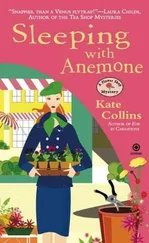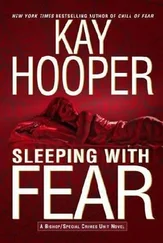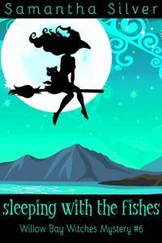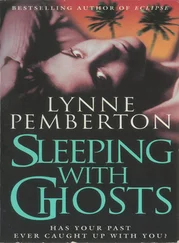“Lewis,” I said.
“James,” he said.
“Keeping busy?” he asked.
“Keeping busy,” I agreed. “How’s Fiona?”
“She’s fine. How’s Christina?”
“If it wasn’t for alimony, I wouldn’t know what to do with my time,” I said.
Lew blinked at me.
“My life’s a train-wreck,” I told him. “How’s yours?”
He blinked at me again. Lew, bless him, had always been an unsophisticated organism. Dig and record, that was all he did. The news of his marriage had come as something of a surprise. The news of his divorce had been something less than a surprise. Although possibly more of a surprise than my own divorce.
Rowland was watching us the way an owner might watch two dangerous animals he had grown rather tired of. “Gentlemen,” he muttered. “Might we save this for another time, please?”
“If I’m lucky, there might not be another time,” I told him, but I backed off a fraction and Lew backed off a fraction and Rowland shook his head.
“Doctor King,” he said. “I understand you have something to show me.”
I watched Lew put me to the back of his mind. “It’s over here,” he told Rowland, gesturing across the field. “You were right all along, of course. It’s a marvellous thing.”
He led us out across the field towards the excavation, and as we walked I spotted people I knew working around the site, people who had been in my year at university, or a year above or below me. All of them Rowland’s former students. It was possible that the only two other organisations as adept at placing moles and sleepers in useful positions were the CIA and the East German foreign intelligence service. Rowland didn’t actually have to be physically present at a dig any more; wherever a spade went into the soil anywhere in Britain there would be someone who reported directly or indirectly back to him. I thought about that for a moment, while we walked beside Lew, and thought it was more than a little scary.
Lew had been rehearsing; you could see it in his body language. He walked us to the edge of the dig and he stopped, and he swept his arm across the thing that he and his team had uncovered, and he said, “Professor Gibson, may I present the home of Lucius Claudius Setibogius.”
We looked. “Oh, fucking hell ,” I said.
Lucius was a Second Century spiv. Rowland said that we weren’t supposed to think of the people of antiquity in modern terms, but I’d found that I couldn’t think of Lucius in any other way. We had never managed to find out what he looked like, but I always imagined that he was like the Flash Harry character George Cole played in those old St Trinians movies. Pencil moustache, hair slicked back with Brylcreem, long overcoat with the collar turned up, trilby tilted down over his eyes, that strange stiff rapid walk, that was Lucius. If he was alive today he’d be making his living hawking dodgy postcards around the harbour in Naples, asking likely-looking tourists if they wanted to meet his sister.
He was actually a Romano-Brit, and a Roman citizen to boot. We never established how he managed to get his name, but I had my theories. In those days it was fairly common practice when a non-Roman was granted citizenship for him to pick a first name more or less at random, take as his middle name the name of the person to whom he owed his citizenship — often a local governor or a general — and keep his original native name as a surname. I thought Lucius got his citizenship, and his name, because he had done a favour for someone called Claudius. Lucius was good at favours. They had made him colossally wealthy.
They do say that you never forget your first love, and Lucius was Rowland’s. Rowland had first come across him when he was an undergraduate, going through some documents at the British Museum which nobody had looked at since they had been dug up in Rome in the late 1800s. Rowland, for all his faults, had an infallible eye. He spotted Lucius immediately, the way he’d spotted me, knowing that he’d struck gold. Lucius popped up periodically out of the documentation, doing deals, sending letters, being rude to contractors, refusing to pay bills to merchants because he claimed their goods were substandard. He’d lived in Rome for a while, and there was a letter from a fish merchant which mentioned that complete bastard Lucius Claudius Setibogius . Lucius had never conquered a country or won a famous legal case, but he was extraordinary. Lucius was nouveau-riche, he was fast-track, he was a man of the future. His descendants were probably still here, doing deals, fucking somebody over for a percentage, driving the latest model car, living in rancho-style homes in Chigwell with permatanned wives and daughters with belly-button jewellery and big hair.
All of which was deeply interesting to Rowland. But his attention really began to focus when archaeologists working at Vindolanda, one of the forts along Hadrian’s Wall, turned up a huge haul of letters. The letters were in the form of flat pieces of wood about the size of postcards, hinged together with leather thongs. A person would write on these, tie them up with the thongs, and send them off. And there was one signed Lucius Claudius Setibogius.
I could guess what effect this had on Rowland — mainly because I had seen an enormous blown-up photograph of the letter blu-tacked to his living room wall. All those years trying to follow Lucius through bits of documents and things other people had said about him, and here was Rowland finally looking at the man’s handwriting. It was, I thought, rather florid and childish handwriting, the kind of handwriting an eager country boy on the make might have.
Only fragments of the letter survived. We had the salutation at the beginning, to somebody called Marcus — presumably someone stationed at Vindolanda — and we had the signature. And in the middle, where the faint ink-scratched words hadn’t been rotted or faded away, we had a few sentences about a visit Lucius had made to the Colosseum.
You needed a bit of background for this part. The Colosseum was not all gladiators knocking seven shades of shit out of each other. The Romans loved pitting people against animals, staging hunts in the arena that must have been like bloodier versions of Buffalo Bill’s Wild West. They brought megatons of animals to Rome from all over the Empire for this purpose. I forget how many animals were killed when the Colosseum was dedicated, but I once heard a figure that ran into the thousands. Lions, cheetahs, bears. If it had claws and teeth and an attitude, the Romans were happy.
Lucius’s letter to his friend Marcus bemoaned his life now he was living in Britain again. He recalled his days in Rome, in particular an afternoon spent at the Colosseum watching gladiators fight animals. More specifically, some animals he called homunculi .
“They were very small,’’ he told Marcus, “but very quick and hard to kill.’’
Most commentators thought Lucius was referring to chimpanzees here. Most commentators dismissed as pure fantasy Lucius’s next comment, which translated as, “One had been taught to speak Latin, and I conversed with it. It told me its home was much warmer than Rome.’’
Rowland was not most commentators. He really did wonder about that line. Lucius was not given to flights of fancy. He was money-driven. He was the world’s most prosaic man. Rowland thought he really was remembering talking to a small creature, regarded by the Romans as an animal, which nonetheless was capable of speaking Latin. “I am told,” Lucius wrote, “that they lived in a bronze house.”
Rowland wondered. Lucius said the homunculi had been found in the great braided area of deltas and marshes where the Danube enters the Black Sea. Rowland put all his data about Lucius and the Colosseum and Roman ‘hunts’ and stories of mythical animals into his PC and he juggled them around and for years and years he wondered.
Читать дальше
